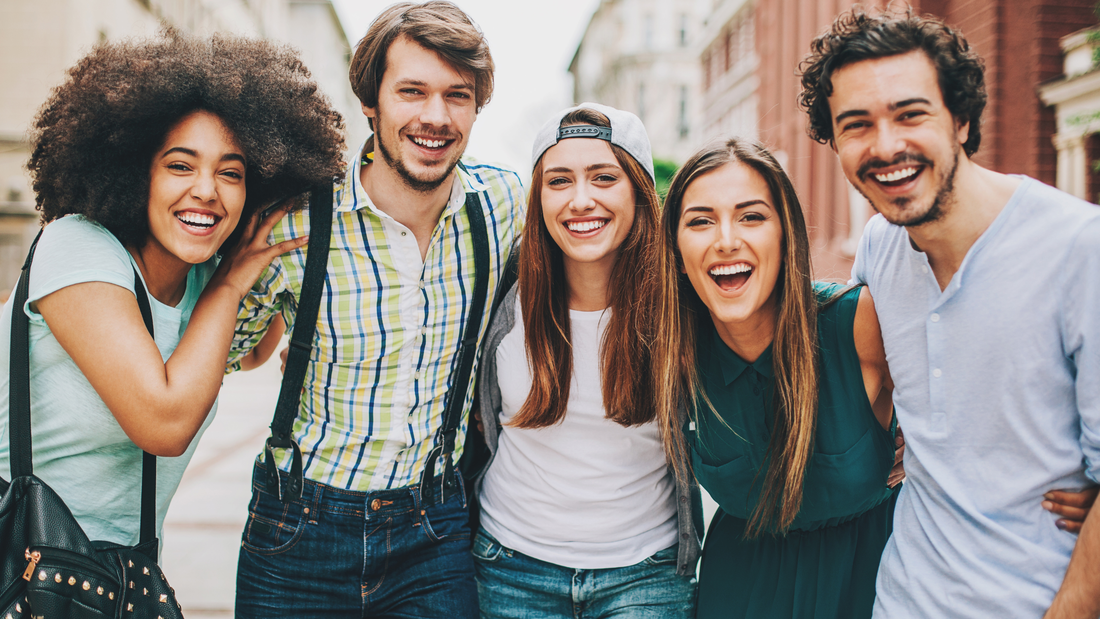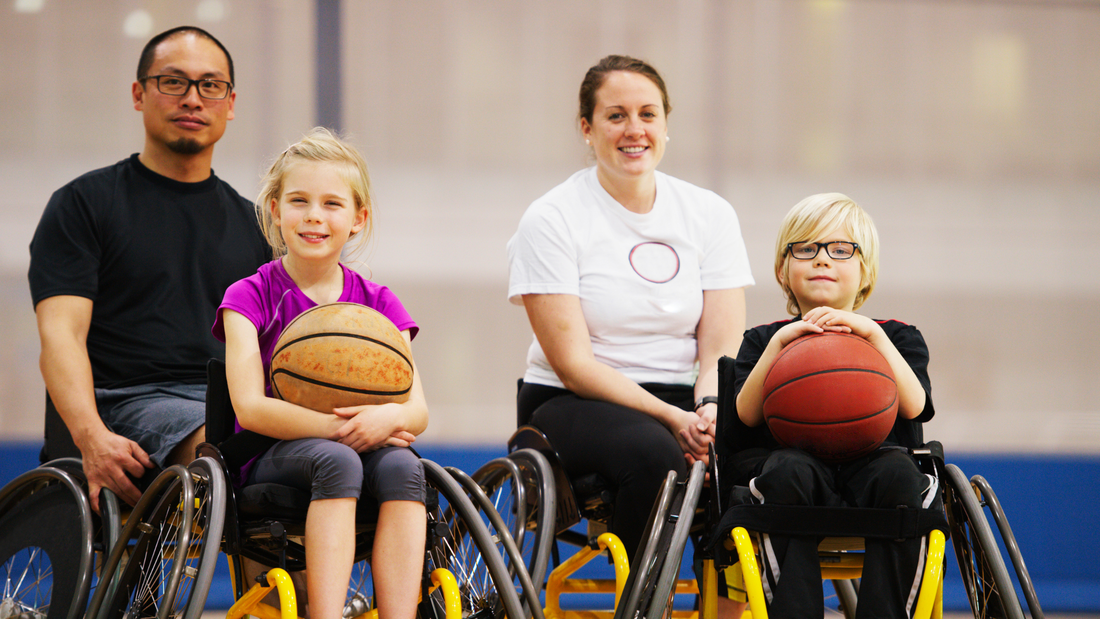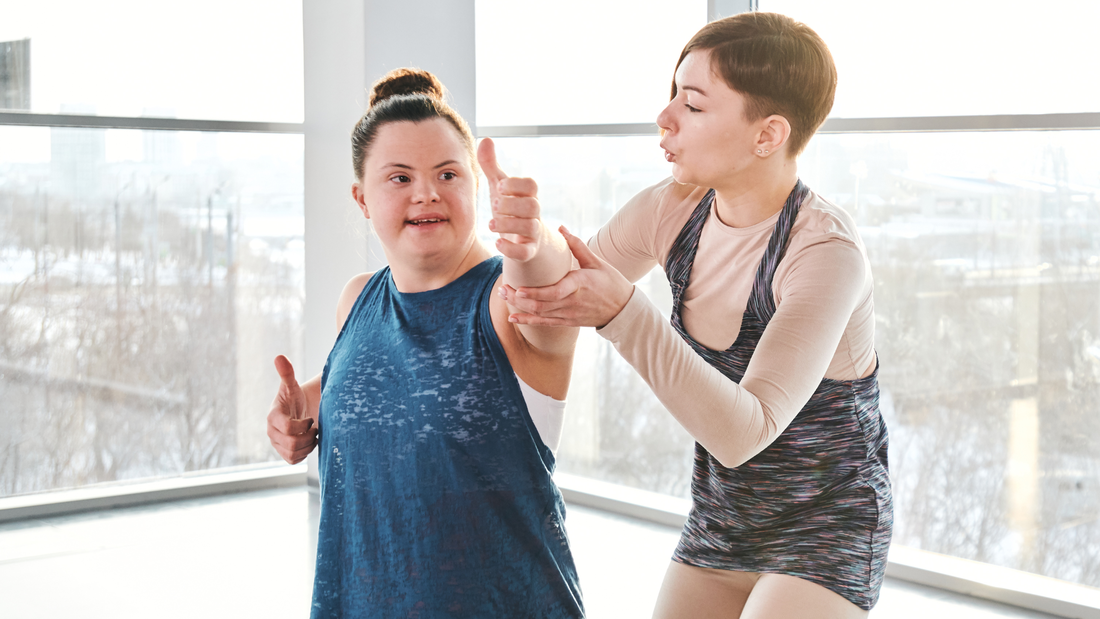|
Everyone needs a healthy social life, but when a person has autism, it can be more challenging to develop a social life than for a neurotypical person. Although autistic people may have trouble picking up on social cues, they're just as vulnerable to the effects of social isolation as everyone else. In fact, prolonged social isolation can increase the risk of high blood pressure, depression, and anxiety.
The good news is that there are plenty of ways for people with autism to improve their social skills and build healthy friendships. Today we'll discuss what it means to have autism and provide a few ways to improve social skills for autism. What is Autism? Autism, also known as Autism Spectrum Disorder (ASD), is a developmental condition that affects how a person experiences the world, their interactions with others, and how they think and feel. Since autistic people are considered 'neurodivergent,' their brains work differently than 'neurotypical' people. Everyone with autism displays slightly different traits, but people with autism experience differences such as the following:
It is important to note that autism exists on a spectrum because every autistic person has an entirely different experience. Some autistic people need more support than others, and every autistic person exhibits different traits. How to Develop Social Skills for Autism People on the spectrum often struggle in social situations because they don't interpret social cues the same way a neurotypical person would. However, there are plenty of ways for autistic people to improve their social skills and form enriching social connections. 1. Invest in their Interests People with autism develop hyper-fixations, meaning they become immersed in a single topic for hours. A hyper-fixation may last a week, month, or entire year, which is normal for people with autism. These hyper-fixations offer great opportunities for people with autism to develop better social skills. For instance, if your autistic child is interested in plants, take them to public gardens and get them a few books on botany. Hyper-fixations give people with autism something to talk about with others. 2. Thoughts and Feelings Activities Learning to recognize the thoughts and emotions of others helps people with autism navigate a neurotypical world. But developing social skills for autism can be frustrating and often impacts their ability to understand and recognize emotions in others. However, thoughts and feeling exercises can help people with autism develop their social skills. A great exercise for children with autism is playing the "Face Game." During this game, you can help your child learn facial expressions by mimicking certain emotions and asking your child to mirror the feelings. Then, ask your child to name the emotion you represented. Simple exercises can enrich your child's social life for years to come. 3. Find Like-Minded Social Groups As the old saying goes, everybody needs somebody sometimes! This is true for people with autism and neurotypical individuals because they can also experience the adverse effects of social isolation. There are plenty of ways to get social and come out of your shell. However, autistic people generally find it easier to make friends when the social group relates to a hyper fixation. The following group activities can be a great way to make friends:
Often, autistic people find social situations overwhelming or complicated, but interacting with like-minded people in a safe environment can have a lasting positive impact. 4. Role Play and Positive Reinforcement Role-playing is integral to social skills training for people with autism because it allows them to familiarize themselves with different situations before they occur. In addition, role-play allows autistic people to manage any social anxiety they might have. You might role-play scenarios such as going on a date, ordering food at a restaurant, or checking out at the grocery store. However, role-playing must be combined with positive reinforcement for people with autism to reap the full benefits. In simple terms, positive reinforcement is the process of recognizing, rewarding, and encouraging desired behavior. 5. Enroll in Groups with Specially-Trained Instructors When a loved one has autism, it's challenging to help them manage their differences independently. While you can encourage them to enroll in any club, it's much easier to develop social skills for autism with the assistance of specially-trained instructors. At Let's Go Fitness, we provide a welcoming environment where people with diverse abilities can get fit and develop their social skills with the guidance of adaptive fitness professionals. People with autism can connect with like-minded individuals online and get in the best shape of their lives! Make the Most of Your Diverse Abilities with Let's Go Fitness! At Let's Go Fitness, we strive to create a welcoming environment where you can make friends, get in shape, and have fun doing it! Our adaptive fitness specialists will guide you every step of the way. Whether you need accommodations, modifications, or simply an understanding listener, we'll help you reach your goals. Are you ready to start your fitness journey? Contact Let's Go Fitness today to learn more about our membership packages!
0 Comments
Experts recommend that children and teens get at least 60 minutes of physical activity every day, and this rings true for children with disabilities as well. However, when a child is differently-abled, encouragement for regular exercise may fall to the wayside due to their perceived physical limitations.
Numerous studies show that children with disabilities often have lower levels of physical fitness, but there are plenty of ways to change this narrative. There is no shortage of physical activities appropriate for children with disabilities, especially when implemented with help from adaptive fitness specialists. Want to learn more? Let’s get started! What Are Good Physical Activities for Children with Disabilities? While physical activity benefits all children, differently-abled children often have lower cardiovascular fitness and muscular endurance levels, which coincides with greater levels of deconditioning and obesity. Although some parents or guardians may discourage children with disabilities from engaging in physical activities, it's a vital component of healthy development. Any child can get in shape with guidance and support! Physical activities for children with disabilities are often similar to those for any other child, requiring just a few accommodations. For instance, the following sports and activities are ideal for children with special needs:
While some activities don't require any changes, others may need a few accommodations to ensure your child can fully participate. Regardless of your child's chosen activity, it's essential to seek the assistance of adaptive fitness specialists who understand your child's special needs. What Obstacles Do Children with Diverse Abilities Face? Although no one should feel limited by their physical or mental ability, children with diverse abilities often harbor feelings of inadequacy and feel excluded from social interactions with their peers. Differently-abled children often experience barriers, including the following:
Physical activities for children with disabilities come with benefits such as improved lung capacity, increased muscle strength, and better cardiovascular health, just as for everyone else. However, an adaptive fitness regime also has benefits that span beyond the physical body, such as the following. 1. They Increase Self-Esteem When differently-abled children grow up in a society where they are underrepresented, it can be a blow to their self-esteem. However, as children learn that their diverse abilities are valuable and strengthen their social support systems, they can develop a much more positive self-concept that will serve them well in adulthood. Studies show that differently-abled individuals who start sports at an early age and continue for many years have much higher self-esteem than those who do not. Playing an adaptive sport instills differently-abled children with a sense of accomplishment and belonging. Moreover, their improved self-esteem will spill over into other areas of their lives for a healthier, happier lifestyle. 2. They Promote Inclusion and Relationship Development Sometimes, differently-abled people feel left out, especially at school. They often find it challenging to "fit in" with peers and make genuine friendships. Fortunately, when children with disabilities partake in adaptive fitness activities with others, they can connect with their peers in a fun, exciting environment. This way, children with disabilities feel included, just like their classmates. Everyone needs a few friends, but it can be incredibly challenging for children with disabilities to have a healthy social life. However, encouraging your child to participate in adaptive fitness with others is a great way to foster a sense of community, which is essential to their well-being. 3. They Improve Quality of Life You're probably aware that exercise comes with myriad health benefits, but for differently-abled children, these health benefits can alter the course of their lives for the better. Physical activities for children with disabilities enhance cognition, help them manage their weight, strengthen their bodies, and improve their ability to perform everyday activities. Sometimes, differently-abled children struggle with mental health difficulties, but a regular exercise routine can also diminish symptoms of depression and anxiety. The release of endorphins from regular exercise reduces depressive symptoms. Furthermore, regular exercise provides a healthy way to alleviate any tension or stress your child may be experiencing. How to Introduce Fitness for Children with Disabilities When your child has special needs, it can be challenging to find physical activities for them to participate in. However, there are plenty of ways to help your child get involved. These simple tips will help you get started! 1. Begin Early It's never too late for your child to get involved in adaptive fitness, but the sooner, the better! Ideally, you'll have the opportunity to get your child involved in sports when they begin branching out from individual play. An early start will also ensure that your child builds healthy habits and high self-esteem from a young age. 2. De-Medicalize Sports Physical activities for children with disabilities often occur in clinical settings, such as physical and occupational therapy. Adaptive fitness is an opportunity to show your child that it’s fun to lead a healthy lifestyle, especially when you’re surrounded by friends! Whether your child chooses to participate in a sport or take up fitness activities like weightlifting, exercising in a fun setting teaches children with diverse abilities how to move their bodies safely, and these skills will stay with them in adulthood. 3. Get Help from Adaptive Fitness Specialists Before your child partakes in any sport, ensure that you're working with adaptive fitness specialists that have experience with special needs children. Specialists familiar with differently-abled children will allow you and your child to easily navigate any challenges that arise. Adaptive fitness experts understand how to offer accommodations, modifications, structure, and even de-escalate tense situations so your child can focus on getting fit and having fun. Consider seeking help from an adaptive fitness specialist and work with them to create a customized fitness program for your child's special needs. Make the Most of Your Diverse Abilities with Let's Go Fitness! At Let's Go Fitness, we strive to create a welcoming environment where everyone can make friends, get in shape, and have fun doing it! Our adaptive fitness specialists guide our athletes every step of the way. Whether your child needs accommodations, modifications, or simply an understanding listener, we'll help them reach their goals. Are you ready to get started on this fitness journey? Contact Let's Go Fitness today to learn more about our membership packages! It can seem like the fitness industry often celebrates one body type, which is thin, cis-gendered, "able-bodied," and strong in all the right places. Consequently, anyone who doesn't fit this mold may feel forgotten and discouraged from beginning their fitness journey.
The truth is anyone can get in shape and become the fittest version of themselves — even people with diverse abilities. With a supportive community and the expertise of adaptive fitness specialists, athletes with diverse abilities can get active and lead healthier lifestyles. Empowering athletes with diverse abilities strengthens the community and creates an environment where everyone feels valued just as they are. Let's get started by learning more about what it means to have diverse abilities and the benefits of a specialized, understanding fitness community. What Are Diverse Abilities? The term "diverse abilities" means that everyone has unique abilities, and all of them have intrinsic value. This is a relatively new phrase when referring to people with special needs, but changing the language we use to speak about people with "disabilities" creates a more welcoming, inclusive environment for everyone. The American Community Survey (ACS) uses six basic categories when defining people with diverse abilities, including the following:
By raising awareness about diverse abilities, we can create a society that is more accessible to all. Recognizing and respecting that there are different ways of navigating the world gives people with diverse abilities the opportunity to reach their full potential. Physical Training with Diverse Abilities Most people with diverse abilities focus on enhancing cognitive skills through additional school tutoring or work accommodations. However, physical training and exercise are just as crucial for those with diverse abilities as for everyone else. Physical activity is proven to increase self-esteem in those with diverse abilities while providing a necessary social outlet. Most people know that regular exercise has myriad benefits for a person's physical and mental health, but this is especially true for those with diverse abilities. Research states that adaptive fitness dramatically improves the overall well-being of individuals with diverse abilities and provides them with a sense of purpose and a safe environment for social interaction. How to Incorporate Adaptive Fitness in an Exercise Regimen In the simplest terms, adaptive fitness is personal training for people with diverse abilities. These workouts may include strength training, cardio, and pilates, just like any other exercise regime. With these tips, every athlete can get a well-rounded workout catered to their abilities. Feature Low Impact Exercises Some people with diverse abilities have ambulatory conditions, meaning that high-impact exercises such as running or jumping rope can cause injury. But these exercises can be modified to avoid injury. For example, instead of doing jumping jacks, diversely abled athletes can remove the jumping and do a half jack with arm movements. Athletes who are wheelchair-bound or have other ambulation conditions may need to perform entirely different exercises. In this instance, consider handcycling and other seated aerobics exercises. Try Exercises Made to Fit Each Athlete’s Abilities Athletes with motor imbalances can accommodate these physical challenges by performing exercises that are made especially for them. For instance, people with autism benefit from adaptive fitness exercises like bear crawls, which allow them to improve cue recognition and coordination simultaneously. Anyone can build a stronger body and become the athlete they always wanted to be with the right activities, modifications, and accommodations. Use Resources and Connect with Others When it comes to adaptive fitness, it's essential to use all available resources and form a community with people that also have diverse abilities. There's no better feeling than working out with friends, and research supports the assertion that exercising in a group can supercharge an athlete’s motivation. Additionally, people with diverse abilities often leave the world feeling excluded and underrepresented. Working with similar people creates a safe environment where they can achieve their fitness goals without judgment. Since very few gyms cater to those with diverse abilities, these athletes should consider joining an online fitness community like Let's Go Fitness, where they can fit in with people just like them! Who Can Benefit from Let's Go Fitness? Getting in shape is all about fun, friends, and fitness. At Let's Go Fitness, we ensure that people with diverse abilities have the resources to lead a healthier lifestyle and have fun doing it. Our fitness community celebrates diverse abilities. While we work with all people, most of our athletes have the following conditions:
If you or a loved one needs help accommodating any other disabilities, we're happy to help! Just let us know so we can develop a regimen to bring out the best in your diverse abilities. What to Expect When You Join Interested in joining our supportive community? In the first phase of your fitness journey, you'll work out individually with our adaptive fitness specialists to master the basics, like proper form and safety. In the second phase, you'll form social connections with other athletes with diverse abilities. Once you have a solid foundation and are comfortable working out in a group, you'll move on to the Fitness phase, where you can focus on improving your athletic abilities with support from your new friends! Make the Most of Your Diverse Abilities with Let's Go Fitness! At Let's Go Fitness, we strive to create a welcoming environment where you can make friends, get in shape, and have fun doing it! Our adaptive fitness specialists will guide you every step of the way. Whether you need accommodations, modifications, or simply an understanding listener, we'll help you reach your goals. Are you ready to start your fitness journey? Contact Let's Go Fitness today to learn more about our membership packages! |
ABOUTLet's Go Fitness's blog page keeps you up to date with educational and instructional information for training with diverse abilities. Archives
June 2023
Categories |
Let's Go Fitness
© 2020 Let's Go Fitness is an online fitness platform for people of all abilities.




 RSS Feed
RSS Feed